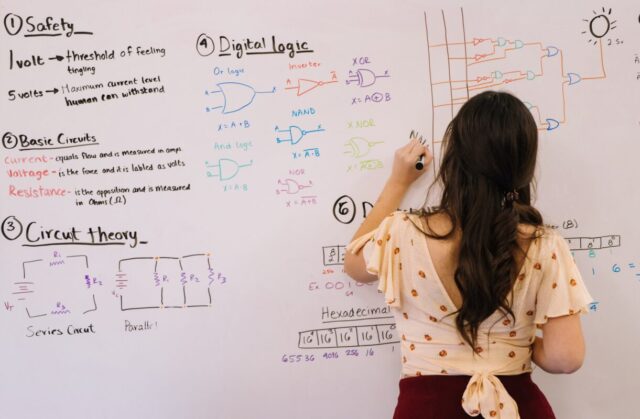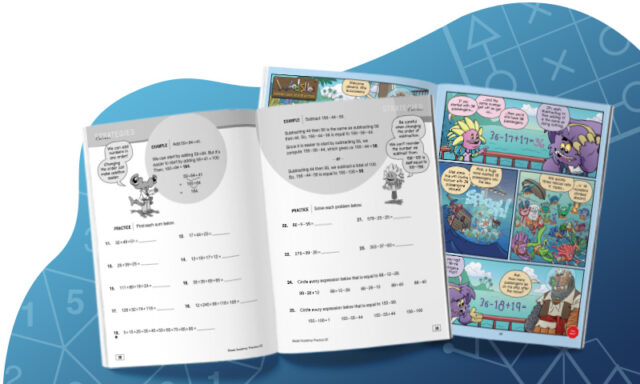
There’s no denying that math is challenging. Thus, many students have trouble with mathematics at some time in their life. Math is based on logic and principles that can be studied and used. It does not require any special abilities. Others may find the topic simpler than you do, but if you learn and work hard enough, you can master math as well. You can make math a bit less complicated and have a better chance of success by honing your abilities and studying every day. Today, in this article, you will find some tips to learn maths in simple steps. First, let’s find out some reasons why students struggle with mathematics.
Why Do Students Have Difficulties With Mathematics?
Mathematics is sometimes regarded as one of the most complex topics for students. There might be a lot of causes, ranging from concentration issues to learning gaps from previous math classes to just a lack of practice. Take a look at some of the most prevalent reasons students struggle in math.
- Basic Concepts Aren’t Clearly Defined.
- Teaching Methodology.
- A Lack Of Experience.
- Attention Disorder.
The most crucial thing to remember is that pupils struggle with math on a routine basis and that this should not discourage them. It takes a huge effort to learn arithmetic. But, it doesn’t have to be challenging if you have the right abilities. So, let’s look at some tips to learn math without hassle.
What Tips To Follow To Understand Maths?

There are a lot of students that hate math all around the world. But, if you follow specific suggestions, it may be exciting. It becomes much easier when you understand how to apply math in real life. So, here are the tips.
1. Play math games
For the most incredible experience, look for online games that are appropriate for your age and educational level. To play games on the move, you may get them online or download applications to your phone.
2. Use mental math
Some topics, such as geometry or calculus, require the use of a pencil and paper to begin. But, math essentials such as addition, subtraction, multiplication, and division may be completed mentally. If you come across a simple problem, solve it mentally first before using a calculator. Such mental tricks will also help you find MyMathLab answers without any hassle. You can visit Mymathlabanswer.com for more information.
3. Don’t memorize math

Never try to memorize arithmetic since it will make you dislike the subject – especially if you aren’t good at it. To study math more effectively, you may use diagrams, visualizations formats, link concepts, relate them to something you already know, and master the essential idea.
4. Be attentive in class
If you don’t understand the fundamentals, you’ll never learn maths. Make sure you pay close attention as topics are discussed at the beginning of each new course. Math is usually taught as a succession of building blocks, and it can be tough to follow up if you miss one.
5. Practice daily
Here’s where you have to be completely honest with yourself. If you’re not giving it your all, you’ll need to put in more effort to practice on your own. If you don’t want to put in the effort, you won’t be able to comprehend arithmetic. Also, you can always practice at home on mathematical websites for kids.
6. Make a graphic representation of word problems

Grab a pencil and start drawing if you’re having trouble visualizing the problem on paper. Make some circles to symbolize pies or stick figures to represent people. As you go through the problem, use your visualizations to assist you in solving it.
7. Try the numerous approach to find math solutions
The teacher shows many approaches to solving the same problem and encourages students to develop their inventive solutions. You can use the procedure to come up with a solution. Don’t give up after one failed attempt.
8. Learn the previous chapter
It isn’t easy to progress if you don’t comprehend the previous lesson. If you’re having trouble understanding anything, spend extra time studying it or tackling homework problems to solidify your understanding. As a result, always finish the previous chapter before moving on to the next.
9. Follow group studies

Some pupils prefer to learn independently, while others prefer to work in groups. It’s best to sit in groups to tackle math problems when the subject requires more solutions. This engaging strategy aids in the development of critical thinking and problem-solving abilities. You may exchange fresh ideas, make decisions, discover alternate problem-solving ways, educate others to learn better, and clear up questions in this manner.
10. Integrate maths into your daily routine
Calculate how much money you should get back when you get your chance at the grocery. If you’re filling up your vehicle tank at a petrol station, multiply the price by the number of liters it takes to fill it. Even if the subjects you are learning in school are considerably more complicated, improving your mental math skills might help you feel more secure.
11. Analyze your mistakes
Making mistakes is an inevitable part of the learning process. You must examine them, determine why they occurred, and devise strategies to avoid them in the future. Carelessness, as well as computational and conceptual errors, are common causes of errors. It arises due to inattention, erroneous numerical computation, or misunderstanding of the notion.
12. Buy a practice book

You may get practice books on the Internet or in bookshops for each arithmetic topic imaginable. These practice books will have a guided curriculum to assist you in improving your arithmetic skills.
Final thoughts
Meanwhile, hiring a professional tutor may be a considerable advantage when comprehending a topic, provided you’re ready to invest the money. Professional instructors are reasonably priced and will do your work with complete precision. Furthermore, they will respect your deadline and submit the work on time. But, to make use of such services, you must hire a tutor from a trustworthy company.









